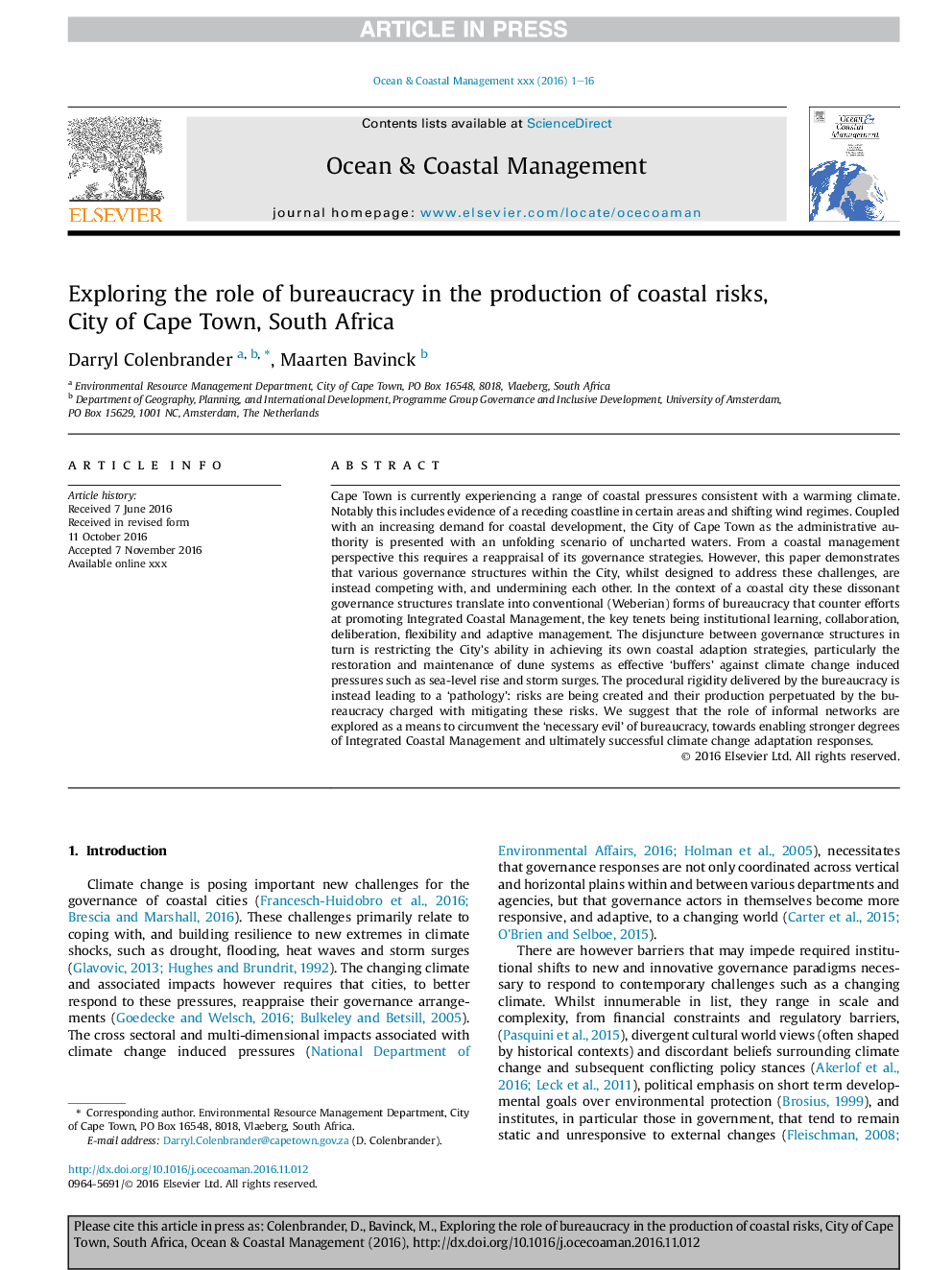ترجمه فارسی عنوان مقاله
بررسی نقش بوروکراسی در تولید خطرات ساحلی، شهر کیپ تاون، آفریقای جنوبی
عنوان انگلیسی
Exploring the role of bureaucracy in the production of coastal risks, City of Cape Town, South Africa
| کد مقاله | سال انتشار | تعداد صفحات مقاله انگلیسی |
|---|---|---|
| 87263 | 2017 | 16 صفحه PDF |
منبع

Publisher : Elsevier - Science Direct (الزویر - ساینس دایرکت)
Journal : Ocean & Coastal Management, Volume 150, 1 December 2017, Pages 35-50

